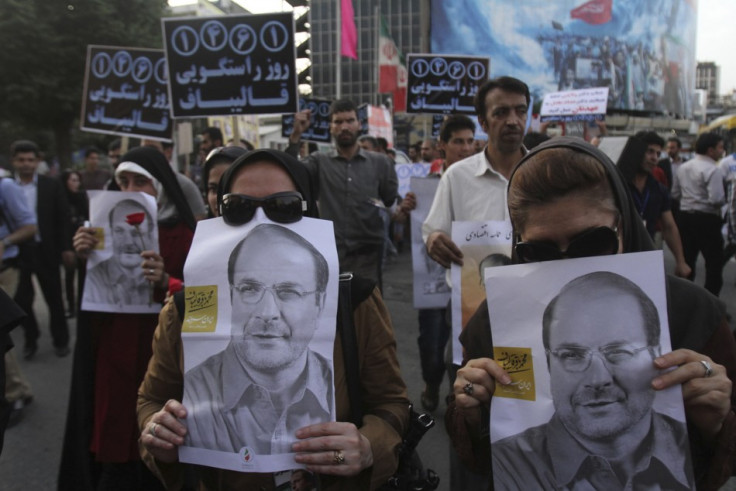Torture, Rapes and Sex Abuse Taint Iranian Presidential Election

Opposition activism in Iran may have been crushed by years of torture and harassment, but a repeat of the mass protests and the subsequent violent police crackdown that marked the 2009 presidential elections is still looming, rights groups say.
Iranians are to choose a successor to President Mahmoud Ahmadinejad on June 14 but key opposition figures including Green Movement leaders Hossein Mousavi and Mehdi Karroubi, as well as dozens of political opponents, remain in detention undermining any prospect of free and fair elections, Human Rights Watch (HRW) said.
Moreover, a gruesome campaign of terror against political activists and simple citizens has been implemented by authorities in the last four years, deterring political participation.
Security forces' use of torture and rape on political detainees has been a key tool of repression to crush dissent and push voters towards apathy, Freedom fromTorture said.
The British-based group has published a damming report on 50 individuals who were arrested and tortured between 2009 and 2012 for political reasons.
Many weren't high profile political activists, but ordinary people who had happened to attend a demonstration or simply engage in political activities.
"These people were mainly those who stood at the back of the crowd, who attended demonstrations because it was on their way home or because their friends were going," Juliet Cohen, Freedom fromTorture's head of doctors said.
Sixty percent of them - men and women - said they were sexually assaulted in custody.
Some of the women were gang raped and assaulted anally, orally and vaginally on more than one occasion, in their cells and in the interrogation rooms. In many cases they were violently stripped and physically restrained during the abuse, the report says.
Sexual abuse has a massive knock-on effect on the victims, their families and acquaintances because of the social stigma attached to rape.
"There is an understanding that sex assault victims will be ostracised by society or get divorced automatically or are thought to be homosexual if men," Cohen said, citing the case of a woman who was filmed while abused and threatened the footage was going to be posted online.
Victims bear the scars of torture, and post-traumatic stress disorders and depression are common among victims. Cohen said that in many cases people were sacked from work or ousted from university after the arrest.
"Their families are going to see what happens if you go to a demonstration," Cohen said. "Your social and professional future is affected and anybody else who hears about this is going to be very, very much discouraged from political activity."
The volume of arrests and abuses picked up after the 2009 protests and has since then declined, although it is still present, according to HRW Iran researcher Faraz Sanei.
Sanei said that, compared to the huge political mobilisation witnessed at the past elections, voter apathy seems to prevail today.
However some protest outbursts have recently been witnessed.
Earlier this month, thousands of people attended the funeral of senior dissident cleric Ayatollah Jalaluddin Taheri. Mourners chented "death to the dictator" and called for the release of political prisoners. Police did not intervene.
"The regime has learned from the 2009 events," Sanei said. "It [kept its] hands off and let that happen."
However events such as Taheri's funeral represent "unpredictable trigger points" that could unleash a massive protest, Sanei said.
Six candidates remain in the battle to succeed Ahmadinejad. The only moderate candidate, Hassan Rohani, and conservative Mohammad Baquer Qualibaf are considered as favourites.
© Copyright IBTimes 2025. All rights reserved.






















